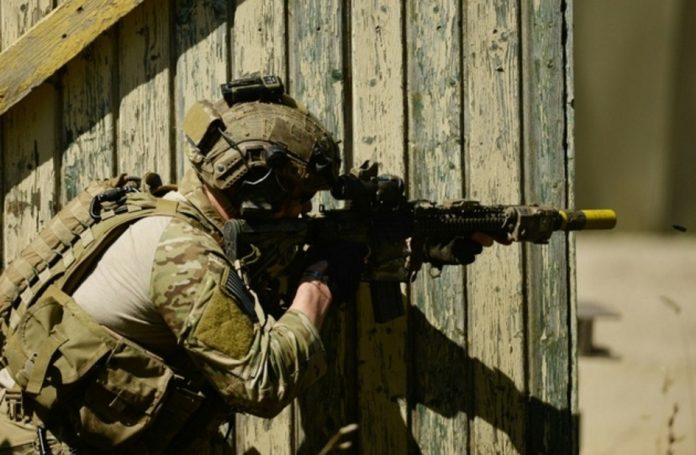
HANNOVER, Germany – President Barack Obama announced Monday the addition of up to 250 Special Operations troops to the American advisory force in Syria, the administration’s latest move seeking to intensify pressure on the Islamic State.
Obama said the added forces are needed “keep up this momentum” against the militant group, which controls portions of Syria and Iraq.
The extra forces, which will be placed in areas of Syria that are removed from conflict and will travel in and out of the country, will bring the number of U.S. advisers there to about 300.
“They’re not going to be leading the fight on the ground, but they will be essential in providing the training and assisting local forces,” Obama said in Hannover at the end of a trip that included talks in Saudi Arabia and Britain.
A U.S. defense official said the decision is aimed in part at helping to expand the ranks of Arab fighters in a network of rebel groups, now dominated by Kurdish fighters, that the United States is backing as it battles the Islamic State. The additional U.S. forces will advise those troops as they seek to isolate Raqqa, the militants’ de facto capital in Syria.
“We’ve had success and obviously want to . . . sustain it, build on it and potentially garner more success,” the official said.
Obama’s intention to send more troops was first reported by the Wall Street Journal.
The decision to increase the number of Special Operations forces in Iraq and Syria was made this month. It was determined that Defense Secretary Ashton B. Carter would announce an additional 200 troops for Iraq during a visit to Baghdad and that the Syria announcement would be made by Obama in Germany, where he met with the leaders of Germany, Britain, France and Italy.
As part of the Iraq announcement Carter made last week, Obama also has authorized U.S. commanders there to use Apache attack helicopters and deploy American advisers with lower-level Iraqi units to assist local troops in a future offensive to reclaim the city of Mosul. U.S. officials think those measures will enhance the effectiveness of Iraqi troops, but they also will expose U.S. forces to greater risk.
The increase is part of an overall acceleration in the fight against the Islamic State. Despite a string of what the administration has described as successes – including territory reclaimed from the militants in Iraq and Syria and the severing of supply and communication lines between Islamic State forces in the two countries – some aspects of the conflict have gone more slowly, or been less successful, than anticipated.
While Iraqi military forces, backed by U.S. air power and other enhancements, retook the city of Ramadi early this year, plans to move toward Mosul, in northern Iraq, have dragged as the Baghdad government contends with economic and political difficulties, and the melding of Iraq’s Sunni, Shiite and Kurdish military forces into a unified offensive force has proved problematic.
The Iraqi military also continues to struggle with issues of morale, leadership and logistics.
In an interview last week with CBS News, Obama said he believed preparations for the Mosul offensive – what the military calls “shaping” operations to surround and weaken Islamic State forces there – should be finished this year and allow the “eventual” retaking of the city.

